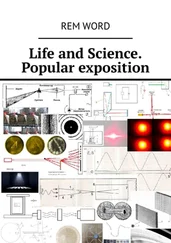Feynman, Field, Richard D.; and Fox, Geoffrey C. 1977.
“Correlations among Particles and Jets Produced with Large Transverse Momenta.” Nuclear Physics B
128:1.
Field, Richard D., and Feynman. 1977. “Quark Elastic Scattering as a Source of High Transverse Momentum.” Physical Review D15:2590.
1978. Talk at Julian Schwinger’s 60th birthday celebration.
AIP.
Field, Richard D., and Feynman. 1978. “A Parametrization of the Properties of Quark Jets.” Nuclear Physics B136:1.
1981. “The Qualitative Behavior of Yang-Mil s Theory in 2 +
1 Dimensions.” Nuclear Physics B188:479.
1982. “Simulating Physics with Computers.” International Journal of Theoretical Physics 21:467.
1984. “Quantum Mechanical Computers.” Plenary talk at IQEC-CLEO Meeting, Anaheim, 19 June. Typescript.
1985 a . Surely You’re Joking, Mr. Feynman! Adventures of a Curious Character . New York: Norton.
1985 b . QED: The Strange Theory of Light and Matter.
Princeton: Princeton University Press.
1986. “Personal Observations of Reliability of Shuttle.” In Report of the Presidential Commission on the Space Shuttle Challenger Accident , I-F.
1987 a . “The Reason for Antiparticles.” In Feynman and Weinberg 1987, 1.
1987 b . “Negative Probability.” In Hiley and Peat 1987, 235.
1987 c . “Linear D Dimensional Vector Space.” Manuscript.
PERS.
Feynman and Weinberg, Steven. 1987. Elementary Particles and the Laws of Physics: The 1986 Dirac Memorial Lectures. Cambridge: Cambridge University Press.
1988. What Do You Care What Other People Think?
Further Adventures of a Curious Character . New York: Norton.
BIBLIOGRAPHY
Albers, Donald J., and Alexanderson, G. L., eds. 1985.
Mathematical People: Profiles and Interviews .
Boston: Birkhäuser.
Albert, Robert S., ed. 1983. Genius and Eminence: The Social Psychology of Creativity and Exceptional Achievement . New York: Pergamon Press.
Alt, Franz L. 1972. “Archeology of Computers: Reminiscences, 1945–1947.” Communications of the Association for Computing Machinery , July, 693.
Anderson, Philip W. 1972. “More Is Different.” Science 177:393. In Weaver 1987, 3:586.
Andronikashvili, Elevter L. 1990. Reflections on Liquid Helium . Translated by Robert Berman. New York: American Institute of Physics.
Ascoli, G.; Feldman, G.; Koester, Jr., L. J.; Newton, R.; Riesenfeld, W.; Ross, M.; and Sachs, R. G., eds.
1957. High Energy Nuclear Physics . Proceedings of the Seventh Annual Rochester Conference, 15–
19 April. New York: Interscience.
Aspray, Wil iam. 1990. John von Neumann and the Origins of Modern Computing . Cambridge, Mass.: MIT Press.
Atomic Energy Commission. 1954. “In the Matter of J.
Robert Oppenheimer.” Transcript of Hearings before Personnel Security Board.
Badash, Lawrence; Hirschfelder, Joseph O.; and Broida, Herbert P., eds. 1980. Reminiscences of Los Alamos , 1943–1945. Dordrecht: Reidel.
Bal am, J.; Fitch, V L.; Fulton, T; Huang, K.; Rau, R. R.; and Treiman, S. B., eds. 1956. High Energy Nuclear Physics . Proceedings of the Sixth Annual Rochester Conference, 3–7 April. New York: Interscience.
Bashe, Charles J.; Johnson, Lyle R.; Palmer, John H.; and Pugh, Emerson W. 1986. IBM’s Early Computers .
Cambridge, Mass.: MIT Press.
Battersby, Christine. 1989. Gender and Genius: Towards a Feminist Aesthetics . London: Women’s Press.
Benzer, Seymour. 1962. “The Fine Structure of the Gene.”
Scientific American , January, 70.
Berenda, Carlton W. 1947. “The Determination of Past by Future Events: A Discussion of the Wheeler-Feynman
Absorption-Radiation
Theory.”
Philosophy of Science 14:13.
Berkeley, George. 1952. The Principles of Human Knowledge . Chicago: University of Chicago Press.
Berland, Theodore. 1962. The Scientific Life . New York: Coward-McCann.
Bernal, J. D. 1939. The Social Function of Science . New York: Macmil an.
Bernstein, Jeremy. 1967. A Comprehensible World: On Modern Science and Its Origins . New York: Random House.
——. 1980. Hans Bethe: Prophet of Energy . New York: Basic Books.
——. 1985. “Retarded Learner: Physicist John Wheeler.”
Princeton Alumni Weekly , 9 October, 28.
——.
1987. The Life It Brings: One Physicist’s Beginnings . New York: Ticknor and Fields.
——. 1989. The Tenth Dimension: An Informal History of High Energy Physics . New York: McGraw-Hil .
Bethe, Hans A. 1979. “The Happy Thirties.” In Stuewer 1979, 11.
——. 1988. “Richard Phil ips Feynman (1918–1988).”
Nature 332:588.
Bethe, Hans A.; Bacher, Robert F.; and Livingston, M.
Stanley. 1986. Basic Bethe: Seminal Articles on Nuclear Physics, 1936–1937 . Los Angeles: Tomash/American Institute of Physics.
Bethe, Hans A., and Christy, Robert F. 1944.
“Memorandum on the Immediate After Effects of the Gadget,” March 30. LANL.
Beyer, Robert T, and Wil iams, Jr., A. O. 1957. College Physics . Englewood Cliffs, N.J.: Prentice-Hal .
Bishop, Morris. 1962. A History of Cornell . Ithaca, N.Y.: Cornel University Press.
Bjorken, James D. 1989. “Feynman and Partons.” Physics Today , February, 56.
Bloch, Felix. 1976. “Reminiscences of Heisenberg and the Early Days of Quantum Mechanics.” Physics Today , December, 23.
Blumberg, Stanley A., and Owens, Gwinn. 1976. The Life and Times of Edward Teller . New York: Putnam.
Boden, Margaret A. 1990. The Creative Mind: Myths and Mechanisms . New York: Basic Books.
Bohm, David, and Peat, F. David. 1987. Science, Order, and Creativity . New York: Bantam.
Bohr, Niels. 1922. Nobel Prize in Physics Award Address, 11 December. In Weaver 1987, 2:315.
——. 1928. “New Problems in Quantum Theory: The Quantum Postulate and the Recent Development of Atomic Theory.” Nature 121:580.
——. 1935. “Can Quantum-Mechanical Description of Physical Reality Be Considered Complete?”
Physical Review 48:696.
Bohr, Niels, and Wheeler, John Archibald. 1939. “The Mechanism of Nuclear Fission.” Physical Review 56:426.
Boltzman,
Ludwig.
1974. Theoretical Physics and
Philosophical
Problems .
Edited
by
Brian
McGuinness. Boston: Reidel.
Bondi, Hermann. 1967. Assumption and Myth in Physical Theory . Cambridge: Cambridge University Press.
Bonner, Francis T., and Phil ips, Melba. 1957. Principles of Physical Science . Reading, Mass.: Addison-Wesley.
Born,
Max.
1971. The
Born-Einstein
Letters:
Correspondence between Albert Einstein and Max and Hedwig Born from 1916 to 1955 . Translated by Irene Born. New York: Walker.
Bosanquet, Bernard. 1923. Three Chapters on the Nature of Mind . London: Macmil an.
Boscovitch, Roger G. 1922. A Theory of Natural Philosophy . Translated by J. M. Child. Chicago: Open Court.
Читать дальше












